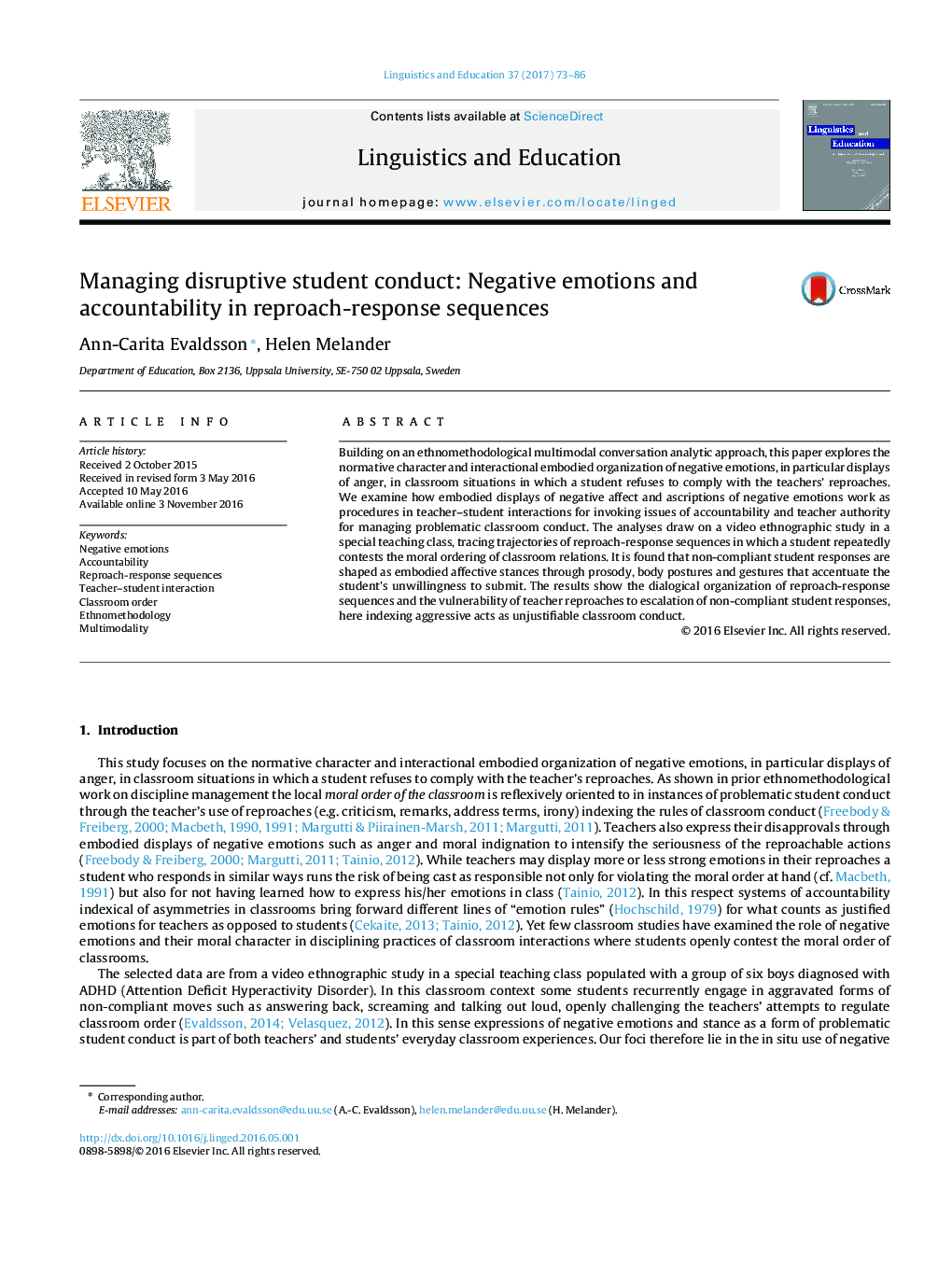| Article ID | Journal | Published Year | Pages | File Type |
|---|---|---|---|---|
| 4940357 | Linguistics and Education | 2017 | 14 Pages |
â¢Role of affect in managing accountability when students contest teacher authority.â¢How non-compliant student responses are shaped as embodied affective stances.â¢Affective student responses contribute to escalations of reproach-response sequences.â¢Teachers use emotional ascriptions to explain and remedy problematic student conduct.â¢Teachers invoke norms of feelings indexing anger as unjustifiable student conduct.
Building on an ethnomethodological multimodal conversation analytic approach, this paper explores the normative character and interactional embodied organization of negative emotions, in particular displays of anger, in classroom situations in which a student refuses to comply with the teachers' reproaches. We examine how embodied displays of negative affect and ascriptions of negative emotions work as procedures in teacher-student interactions for invoking issues of accountability and teacher authority for managing problematic classroom conduct. The analyses draw on a video ethnographic study in a special teaching class, tracing trajectories of reproach-response sequences in which a student repeatedly contests the moral ordering of classroom relations. It is found that non-compliant student responses are shaped as embodied affective stances through prosody, body postures and gestures that accentuate the student's unwillingness to submit. The results show the dialogical organization of reproach-response sequences and the vulnerability of teacher reproaches to escalation of non-compliant student responses, here indexing aggressive acts as unjustifiable classroom conduct.
